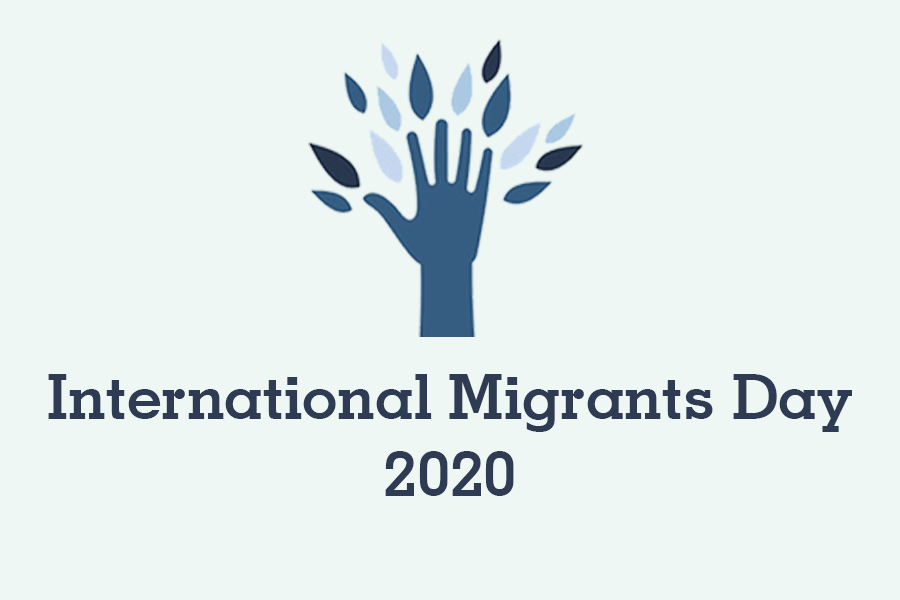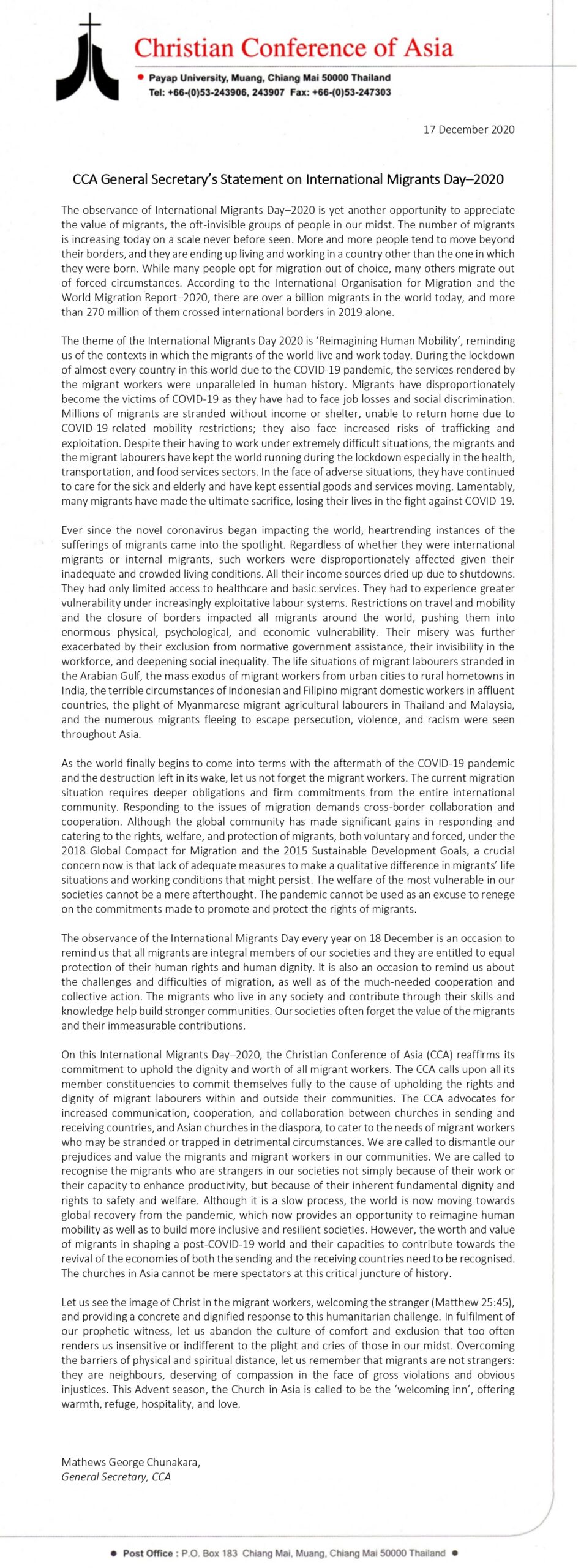CCA General Secretary urges churches in Asia to reimagine human mobility and build more inclusive and resilient societies in post-COVID-19 world

“Although it is a slow process, the world is now moving towards global recovery from the pandemic, which now provides an opportunity to reimagine human mobility as well as to build more inclusive and resilient societies. However, the worth and value of migrants in shaping a post-COVID-19 world and their capacities to contribute towards the revival of the economies of both the sending and the receiving countries need to be recognised. The Churches in Asia cannot be mere spectators at this critical juncture of history,” stated the CCA General Secretary, Dr Mathews George Chunakara.
In a statement issued on the occasion of the observance of the International Migrants Day–2020, the CCA General Secretary urged its member constituencies to strive for increased communication, cooperation, and collaboration between churches in sending and receiving countries and Asian churches in the diaspora—actions that are essential if we are to effectively cater to the needs of migrant workers who may be stranded or trapped in detrimental circumstances.
Reflecting on the theme of the International Migrants Day–2020, ‘Reimagining Human Mobility’, and on the significance of the observance of the IMD, Dr Mathews George Chunakara said that the CCA called upon all its member constituencies to commit themselves fully to the cause of upholding the rights and dignity of migrants who live and work within and outside their communities.
“Overcoming the barriers of physical and spiritual distance, let us remember that migrants are not strangers: they are neighbours, deserving of compassion in the face of gross violations and obvious injustices. This Advent season, the Church in Asia is called to be the ‘welcoming inn’, offering warmth, refuge, hospitality, and love,” added the CCA General Secretary.
The observance of the International Migrants Day every year on 18 December is an occasion to remind the world that all migrants are integral members of our societies and they are entitled to equal protection of their human rights and human dignity.











